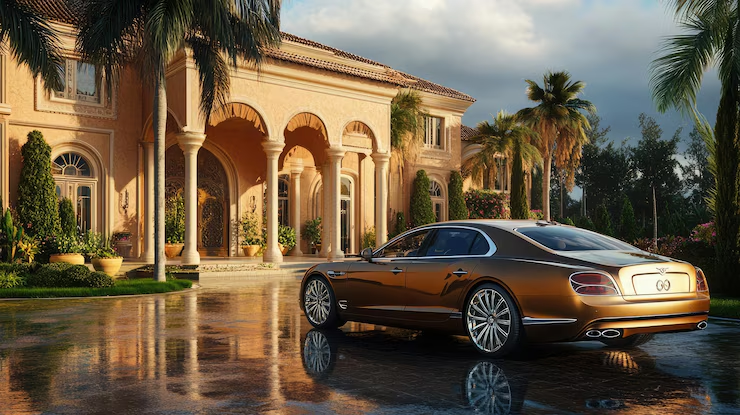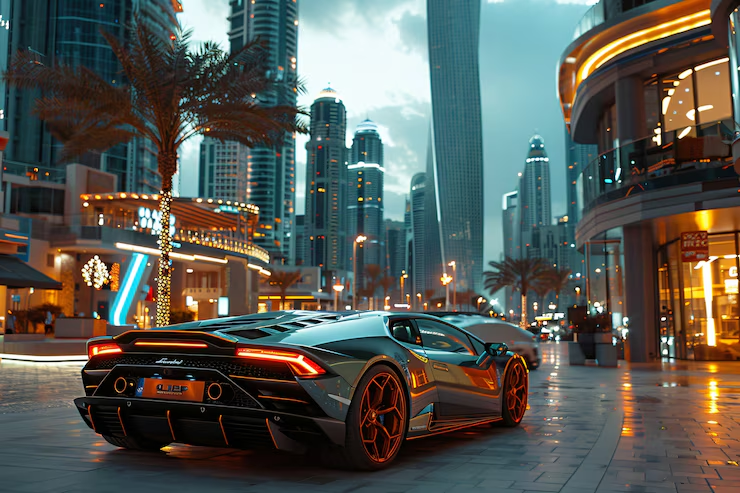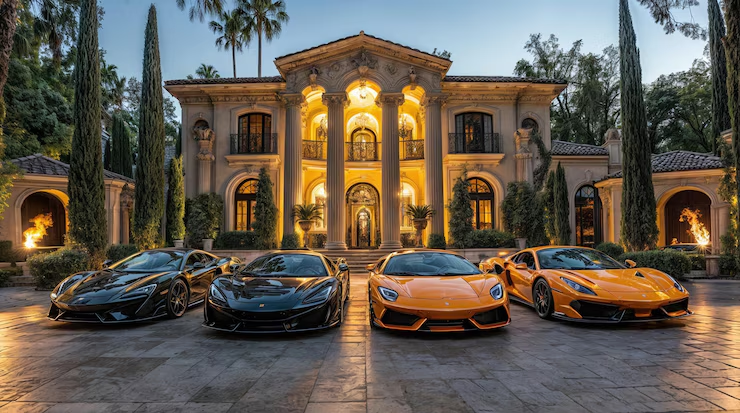Introduction
Luxury cars have long represented more than just transportation—they are the embodiment of status, engineering excellence, and unmatched comfort. These vehicles command attention not only for their breathtaking aesthetics but also for their remarkable performance and technological innovations. From European aristocracy cruising in Bentleys to tech billionaires sliding into Teslas, the world of luxury automobiles is a blend of heritage and future-forward ambition.This article explores the extravagant universe of luxury cars, tracing their evolution, key players, technological marvels, and the lifestyle they symbolize.

A Brief History of Luxury Automobiles
The origin of luxury cars dates back to the early 20th century when automobiles were a novelty. At the time, vehicles like the Rolls-Royce Silver Ghost (1906) and Cadillac Model Thirty (1909) set new standards in comfort and engineering. These cars were handmade, tailored to elite tastes, and often featured custom upholstery, wood trims, and brass fittings.As the decades passed, brands such as Mercedes-Benz, Bentley, Aston Martin, and Jaguar emerged as titans of the luxury segment. The post-World War II era saw significant technological advancements, making luxury cars more powerful, smoother to drive, and laden with features once unimaginable.
Defining a Luxury Car
What truly separates a luxury car from a standard one? It’s not just the price tag.
Superior Craftsmanship
Luxury vehicles are often hand-assembled or rigorously inspected to ensure top-tier quality. The materials used—fine leather, exotic wood, brushed metal—are sourced for their exclusivity and durability.
Cutting-edge Technology
From adaptive cruise control and night vision to AI-powered infotainment systems, luxury cars are often the first to debut new technologies.
Powerful Performance
Under the hood, luxury cars house finely tuned engines. Brands like Ferrari and Lamborghini focus on raw speed and agility, while Rolls-Royce and Bentley prioritize smooth, whisper-quiet rides.
Customization Options
Most high-end manufacturers allow clients to personalize nearly every aspect of their vehicle—colors, stitching, interior materials, and even bespoke features.
Leading Names in Luxury
The luxury car segment is populated with iconic brands, each catering to a unique clientele.
Rolls-Royce
A British marque synonymous with opulence, Rolls-Royce combines hand-crafted interiors with an almost silent driving experience. Its models like the Phantom and Ghost are driven by monarchs, celebrities, and CEOs.
Bentley
Known for merging performance with luxury, Bentley offers powerful vehicles such as the Continental GT and the Flying Spur that deliver both comfort and speed.
Mercedes-Benz (S-Class and Maybach)
The S-Class is a benchmark for automotive luxury, while Maybach models take it to an even more exclusive level with features like reclining rear seats and champagne refrigerators.
Ferrari & Lamborghini
While traditionally considered supercars, Ferrari and Lamborghini straddle the line between luxury and performance, offering stunning design and track-worthy performance.
Tesla (Model S Plaid, Model X)
The electric revolution has seen Tesla enter the luxury conversation with minimalist interiors, cutting-edge software, and mind-blowing acceleration.
Luxury SUVs: A Growing Trend
In recent years, the demand for luxury SUVs has exploded. Wealthy consumers now seek vehicles that combine space, utility, and high-end features.Models like the Bentley Bentayga, Rolls-Royce Cullinan, Lamborghini Urus, and Range Rover Autobiography exemplify this trend. They offer off-road capabilities with interiors comparable to five-star hotel suites.
Electric Luxury: The Next Frontier
As the world shifts toward sustainability, luxury automakers are embracing electric mobility. Notable examples include:
Porsche Taycan – A high-performance EV rivaling Tesla with Porsche’s iconic driving dynamics.Lucid Air – An American EV with ultra-long range and plush interiors.
Mercedes-Benz EQS – A futuristic electric flagship with a massive “Hyperscreen” dashboard.Rolls-Royce Spectre – Rolls-Royce’s first electric vehicle, continuing the tradition of silent operation with zero emissions.Electric powertrains align well with the luxury ethos—offering smooth, silent drives and instant torque.
Ownership Experience: Beyond the Car
Owning a luxury car is about more than just driving—it’s an experience. Brands ensure that from purchase to servicing, every interaction is impeccable.
VIP Buying Process
Many luxury cars are sold through exclusive showrooms or by appointment. Clients may be flown to factories to customize their vehicles.
Concierge Services
Services include home delivery, personalized maintenance reminders, and even travel arrangements made through brand-operated concierge desks.
Maintenance and Warranty
High-end brands offer extended warranties and free servicing packages. Some, like Rolls-Royce, offer 4 to 7 years of inclusive maintenance.
Luxury Car Culture: A Lifestyle
Luxury car ownership often ties into broader lifestyle elements—yacht shows, haute couture, five-star resorts, and private clubs. Car rallies like the Gumball 3000 or GoldRush Rally attract millionaires from around the globe.Social media has also amplified luxury car culture. Influencers showcase their collections on YouTube and Instagram, generating millions of views with garage tours and supercar road trips.
The Price of Prestige
Luxury cars don’t come cheap. A well-equipped Mercedes S-Class can cost upwards of $120,000, while bespoke Rolls-Royce models can cross $500,000. Limited editions or rare classics often fetch millions at auction.But to the wealthy, these vehicles are not just transportation—they’re statements of success, passion projects, or even investments.
Challenges in the Luxury Car Market
Despite their aura, luxury car brands face challenges:
Sustainability pressures and climate regulations are pushing manufacturers to go electric faster.Changing demographics as younger millionaires prefer tech-heavy EVs over traditional gas-powered sedans.Economic uncertainties that can impact sales, especially for ultra-luxury brands.Nonetheless, the segment remains resilient, adapting with innovation and flair.

Conclusion:
Luxury cars represent the pinnacle of automotive achievement. They blend art and engineering, prestige and performance. For some, they are the reward of hard-earned success. For others, a lifelong passion or a marker of identity.As the world evolves, so does the definition of luxury—embracing sustainability, digital interfaces, and smart features. Yet one thing remains unchanged: the feeling of stepping into a luxury car will always be something special.In the world of automobiles, luxury cars truly are Rolling Royalty.

